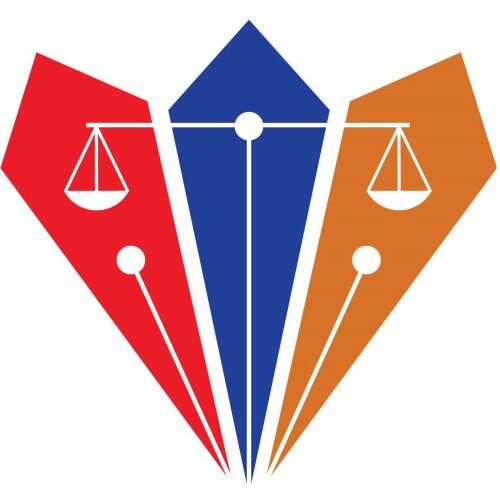Best Conveyancing Lawyers in Dar es Salaam
Share your needs with us, get contacted by law firms.
Free. Takes 2 min.
Free Guide to Hiring a Real Estate Lawyer
List of the best lawyers in Dar es Salaam, Tanzania
About Conveyancing Law in Dar es Salaam, Tanzania
Conveyancing in Dar es Salaam, Tanzania refers to the legal process of transferring property ownership from one person or entity to another. This process is governed by Tanzanian property and land laws, ensuring that transactions are secure, transparent, and fully recognized by the relevant authorities. In Dar es Salaam, conveyancing covers both residential and commercial property dealings and involves multiple procedures such as title searches, contract drafting, land registration, and payment of government fees and taxes.
Why You May Need a Lawyer
A lawyer specializing in conveyancing can help you navigate the complexities of property transactions in Dar es Salaam. Some common scenarios where legal assistance is vital include:
- Buying or selling land, homes, or commercial properties
- Verifying property titles to ensure the seller’s legal ownership
- Drafting and reviewing sale agreements or contracts
- Registering property or land with the relevant government bodies
- Resolving disputes related to property ownership or boundaries
- Dealing with inheritance or transfer of property in family situations
- Advising on stamp duty, capital gains tax, and other legal obligations
- Managing mortgage arrangements or property financing
- Assisting non-citizens or foreigners with local compliance requirements
- Undoing fraudulent conveyancing or recovering lost properties
Local Laws Overview
The legal framework for conveyancing in Dar es Salaam is primarily based on the Land Act, Cap 113, the Land Registration Act, Cap 334, and the Law of Contract Act, Cap 345. Some key features of conveyancing law in Tanzania include:
- Land is owned by the President on behalf of the citizens - most rights are held as granted rights of occupancy or derivative rights (leases).
- All transactions involving land must be approved by the Commissioner for Lands, and the transfer must be registered at the Ministry of Lands, Housing and Human Settlements Development.
- Property owners must obtain a "certificate of occupancy" as proof of ownership.
- The law requires payment of statutory fees including stamp duty, registration fees, and sometimes capital gains tax for transfers.
- Foreigners and companies with foreign shareholding face specific restrictions and can only acquire property for investment after approval by the Tanzania Investment Centre or other relevant authority.
- Transfer of property often requires clearance of ground rent and confirmation of any encumbrances, such as mortgages or legal claims.
Frequently Asked Questions
What is conveyancing?
Conveyancing is the legal process of transferring property or land ownership from one party to another, involving verification of ownership, clearance of dues, and registration of new ownership with relevant authorities.
Do I need a lawyer to buy or sell property in Dar es Salaam?
While not mandatory, it is highly advisable to hire a lawyer because the conveyancing process involves legal scrutiny, paperwork, and compliance checks that most buyers or sellers cannot efficiently perform alone.
How long does the conveyancing process take?
The time frame varies, but a typical transaction can take from a few weeks to several months depending on complexity, completion of due diligence, and responsiveness of government offices.
What costs are involved in conveyancing?
Common costs include lawyer’s fees, government registration fees, stamp duty, and in some cases, capital gains tax. These vary based on property value and transaction type.
How do I check if a property title is clean?
A lawyer or land agent can conduct a title search at the Ministry of Lands to confirm legal ownership and ensure the property is free from encumbrances, disputes, or unpaid dues.
Can foreigners own property in Dar es Salaam?
Foreigners can only acquire land or property in Tanzania for investment purposes after obtaining special approval from relevant authorities. Leaseholds are more common than outright ownership.
What documents are required for property transfer?
Typical documents include a sale agreement, title deed or certificate of occupancy, land rent clearance, tax clearance certificates, and identification documents of both parties.
What is stamp duty and who pays it?
Stamp duty is a government tax on legal documents transferring property. In Dar es Salaam, it is usually paid by the buyer but can be negotiated as part of the transaction terms.
How do I register a property in Dar es Salaam?
After executing a sale agreement, the new owner must present the documents to the Ministry of Lands for verification, pay the necessary fees, and obtain an updated land title reflecting the transfer.
What if there is a dispute after the transaction?
If disagreements arise regarding ownership, boundaries, or contract terms, parties should seek legal assistance. Disputes may be resolved through negotiation, mediation, or, if necessary, litigation in Tanzanian courts.
Additional Resources
If you want more information or support regarding conveyancing in Dar es Salaam, the following resources and institutions can be very helpful:
- Ministry of Lands, Housing and Human Settlements Development - for land registration and property records
- Tanzania Investment Centre - for advice on foreign investment property
- Law Society of Tanzania - for referral to qualified conveyancing lawyers
- National Land Use Planning Commission - for guidance on land use and zoning
- Local banks and mortgage institutions - for financing and property loan advice
Next Steps
If you are considering buying, selling, or transferring property in Dar es Salaam, here is what you should do next:
- Gather all available information about the property, including physical and ownership details.
- Consult a qualified conveyancing lawyer to guide you through the process, from due diligence to execution of documents.
- Ensure all government fees, taxes, and legal requirements are understood and budgeted for.
- Request a title search to confirm the property’s legal status and clearances.
- Follow through with document preparation, signing, and submission to relevant authorities for registration.
- Keep copies of all legal documents and receipts for your records and future reference.
- If you encounter any uncertainties or disputes, seek professional legal counsel right away for tailored advice and representation.
Taking these steps early will safeguard your interests and ensure a legally secure and smooth property transaction in Dar es Salaam.
Lawzana helps you find the best lawyers and law firms in Dar es Salaam through a curated and pre-screened list of qualified legal professionals. Our platform offers rankings and detailed profiles of attorneys and law firms, allowing you to compare based on practice areas, including Conveyancing, experience, and client feedback.
Each profile includes a description of the firm's areas of practice, client reviews, team members and partners, year of establishment, spoken languages, office locations, contact information, social media presence, and any published articles or resources. Most firms on our platform speak English and are experienced in both local and international legal matters.
Get a quote from top-rated law firms in Dar es Salaam, Tanzania — quickly, securely, and without unnecessary hassle.
Disclaimer:
The information provided on this page is for general informational purposes only and does not constitute legal advice. While we strive to ensure the accuracy and relevance of the content, legal information may change over time, and interpretations of the law can vary. You should always consult with a qualified legal professional for advice specific to your situation.
We disclaim all liability for actions taken or not taken based on the content of this page. If you believe any information is incorrect or outdated, please contact us, and we will review and update it where appropriate.













